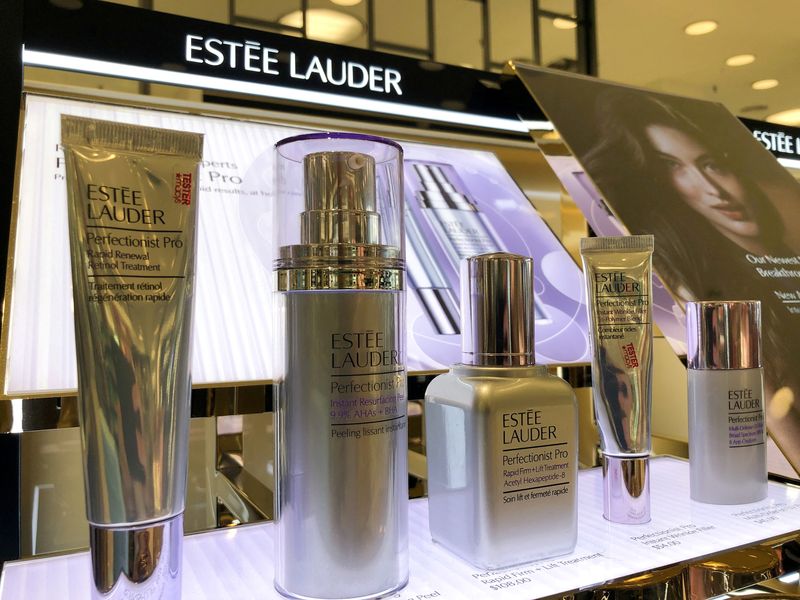By Mehr Bedi and Ananya Mariam Rajesh
(Reuters) - Tapestry (NYSE:TPR) Inc and Estee Lauder (NYSE:EL) Cos Inc forecast full-year earnings below estimates on Thursday, underscoring the hit global luxury goods companies are taking from China's COVID-19 lockdowns.
Major Chinese cities have imposed strict restrictions this year under Beijing's zero-COVID policy, leaving companies that have substantial exposure to the country with piles of unsold goods as cautious consumers stay away from crowded shopping districts.
Tapestry and Estee Lauder join Gucci-owner Kering (EPA:PRTP) SA, Ray-Ban maker EssilorLuxottica as well as Ralph Lauren Corp (NYSE:RL) in flagging a sales hit in China, a key growth market for high-end fashion companies.
Estee, which makes MAC lipstick and La Mer skincare products, gets over a third of its revenue from China, while Coach handbag maker Tapestry generates about 20% of its sales from the region, according to analysts.
Tapestry, which also owns Kate Spade and Stuart Weitzman, said it was beginning to see a recovery in demand in China, with sales expected to fall 15% in the first quarter, compared with a 32% drop in the fourth quarter.
"The weakness in China has only really come about because of the lockdown. Once that region is out of those lockdowns, we see green shoots of the consumer coming back there," Jane & Hali Associates analyst Jessica Ramirez said.
Tapestry forecast fiscal 2023 earnings between $3.80 and $3.90 per share, lower than analysts' estimates of $3.91, according to Refinitiv IBES data. Estee said it expected adjusted profit per share to increase between 5% and 7%, below Wall Street's view of a 10.5% gain.

Still, both companies beat fourth-quarter profit estimates as affluent American shoppers splurge on high fashion as they resume socializing.
"We took an incremental price increase in January because of inflation and still saw incredibly strong demand," Estee finance chief Tracey Travis told Reuters.